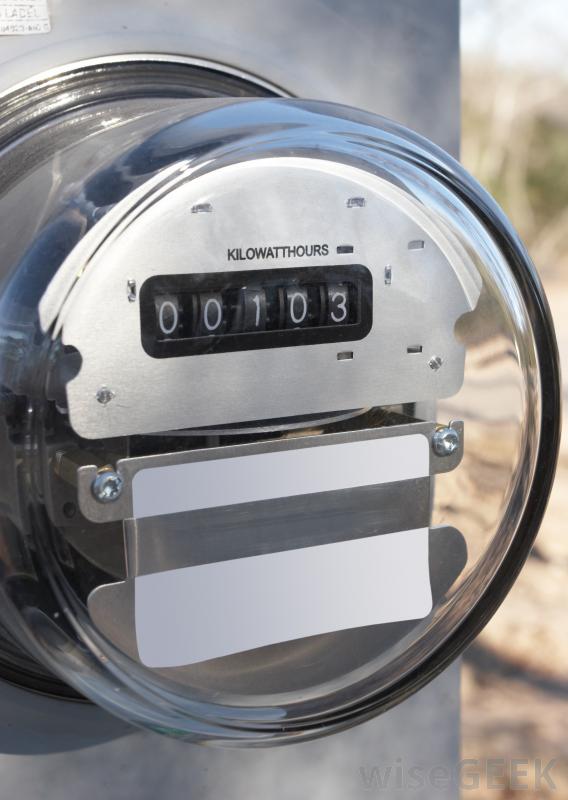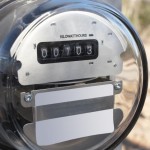When Geoff Bertram sent an advance copy of his upcoming chapter on electricity prices, he did not expect the level of interest he would receive in his work. Bertram, a Senior Associate for the Institute for Governance and Policy Studies at Victoria University, argues in a chapter for the upcoming book Evolution of Global Electricity Markets: New paradigms, new challenges, new approaches (to be released in June 2013) that the electricity prices in New Zealand have surged at twice the rate of nearly every other developed country in the last 30 years, and are now more than twice what they were in the 1980s. While much of the public interest has been focused on the Maori Council’s loss at the Supreme Court this week, paving the way for National to float shares in Mighty River Power as soon as possible, Bertram’s work echoes that of other electricity consultants and highlights that the problem with power might be much larger than it appears in the public arena.
Even with state ownership over the last three decades, Bertram’s work highlights some alarming trends that have seen New Zealanders overcharged by millions of dollars on their electricity. With prices more than a third than Australia and double that of South Korea, Bertram argues that the regulation of the current system favours the electricity company over the consumer.
Similarly, electricity consultant Bryan Leyland points to the deregulation of power since the 1980s, arguing that the system is geared towards producing electricity shortages and high prices to provide return for investors. In a recent article for Stuff, he argues that the Commerce Commission and Electricity Authority are woefully uninformed when it comes to the load management of power to prepare for dry times. He points to the way that Genesis is shutting down two power generators in Huntly as they prepare to float shares on the market. The board has reported profits of an additional $6 million, up to $192 million as they ready the state owned enterprise for floating shares on the stockmarket. A report by Ernst and Young shows that the SOEs have outperformed private power companies in terms of returns to their shareholders while readying for the partial privatization of these assets. While this is done for the benefit of short-term economic gain, Leyland argues the result is that when we next have a dry period (as we did in 2001, 2003, 2006 and 2008), the costs are then passed onto the consumers. He also argues that there is a need to limit the way that lines companies can pass their costs directly onto the consumers, as Orion Energy is currently doing in Christchurch to cover the costs of damaged infrastructure following the earthquake.
National’s ability to sell this partial privatization to voters is crucial to their success in the 2014 election. It is, after all, the policy that they campaigned on in the last election, so to end their second term without having completed the sales is detrimental. Despite John Key’s repeated claims that this constitutes a mandate, the vote on the Mixed Ownership Model Bill was incredibly tight, with Peter Dunne’s single United Future vote providing the majority. The sell down of these assets remains one of the most unpopular policies in recent history – with some polls stating that as many as 75% of voters are opposed. The Greens claim to have 400,000 signatures already for their push towards a Citizen Initiated Referendum, but due to the non-binding nature of such referenda it is easy for the Government to ignore, or push out until after the shares sales are already underway. Treasury have expressed their concerns that the drive within National to sell all of the power companies before the end of their term may lead to an oversaturated market and minimal returns.
Labour, the Greens and New Zealand First have all argued that the partial privatization of assets is likely to increase prices. As New Zealand First’s Energy spokesman Andrew Williams highlights, one downside to the Mixed Ownership Model Bill is that it effectively removes any legislative requirement for social responsibility on behalf of these companies. And this is potentially bad news for the consumer, as the incentive shifts to looking after the company in returning dividends rather than the consumer. While Joyce has been citing Powershop in the House to progress the line that private power companies are cheaper than state owned ones, according to the Ministry of Economic Development’s February 2012 report on electricity prices, the privately owned Contact Energy is more expensive than the state owned companies in Auckland South, Wellington South, Christchurch and Dunedin. National’s argument that the shares are likely to remain in New Zealand hands also seems dubious, with National’s 1999 sale of Contact Energy changing to a 51% majority foreign ownership (Australian company Origin Energy) within five years.
While both Leyland and Bertram point to the history of high power prices in New Zealand to argue that the problem is not one of ownership, Leyland argues that once the partial privatization of these assets occurs the opportunity is lost to address these problems with regulation. Bertram’s much anticipated chapter is not available until the book is published in June, and in this case is perhaps too little too late. But the message on power prices is clear: reforms such as these should not be rushed through at the expense of due process on the basis of an election promise.
Phoebe Fletcher – Phoebe teaches at Massey University in Film, Television and Media Studies. Her views are her own







I don’t think there is much in the way of evidence that 100 percent State owned energy companies have acted any better in relation to power prices up to now.
You’re right but then we have to question why that is. IMO, it’s because the governments have been using them as cash cows to compensate for the low taxes that we’ve had since the late 1980s.
I’d like to see the fixed cost part of electricity bills reduced so that when people make an effect to save power, it makes a difference to their bills.
“National’s argument that the shares are likely to remain in New Zealand hands also seems dubious, with National’s 1999 sale of Contact Energy changing to a 51% majority foreign ownership (Australian company Origin Energy) within five years. ”
Which perhaps indicates that National’s taxpayer funded media strategists are only too fully aware that the “debate” is being conducted by sound bites and by the time one of National’s lies is addressed, the moment has passed. Any response in the media to countering National’s lies is therefore too late, as the “reply is out-of-context.
It’s the way the media operates; short sound-bites, immediacy, and superficiality.
I recall Bill Birch’s soun-bites in the earlu 1990s, during the passing of the Employment Contracts Bill. He stated that the Bill would “free up employers to pay their staff more”.
It was all lies off course.
But the oft-repeated sound-bite was what stuck in voters’ minds.
A more formative method would be a debate with National ministers on one side and SOE sale-critics on the other. Then, in a Q+A-style panel, re-visit the debate and fact-check each major point from both sides.
There would simply be “no place to hide” with such scrutiny.
But alas, the media no longer operates in such a way.
National’s changes to the employment law landscape have remained largely intact since then which is surprising if they were so terrible. Just as I expect no change to the 90 day trial law and the partial sell off of stakes in SOE’s next time the left is in power.
I’m not sure I entirely follow the point if this article. However it actually seems like a good case for the State to completely divest itself of any shares in energy companies as they are currently earning too higher profits. The government could get top dollar and then regulate them so they don:t make such big profits in future
So John Key’s snake oil sales pitch was that Kiwi ma & pa investors get first bite of the cherry. So listing on the Australian share market will capture ma & pa investors here? I think not Judas Key you sell out, more likely deep pocketed Australian fund managers gobbling up ‘our’ power shares.
If I install a grid tied photo voltaic system on my roof is that partial privatisation of my power supply?
Among other things the Public funded the generation and distribution of Electricity as being a component of Infrastructure – they did not fund a business enterprise….. that was thrust upon us without our genuine consent and without those serving in positions of trust informing us that such interests (formerly held under the stewardship of Ministries) were to be transferred to corporations and thereafter “OWNED” by these Corporations.
I suggest that quite a few fundamental “conventional standards of conduct” were ignored in this process such as the concealing of and transferring of interests in Property Note:
Crimes act 1961 section 243 money laundering and sec 408 this act shall bind the Crown
So while the discussion appears to be about the advantages or disadvantages of selling off the Nations Infrastructure- little is spoken about the earlier transfer of interests that paved the way for the current further alienation of interests in public (not government) investments
Consider ….. once the dams and generation equipt etc were paid for- what other than maintenance and improvements would be required of the original investors?….. advertising? executive bonuses? no in fact the cost of electricity as we know it today is stacked to at least twice what it should be if our representatives had been slightly honest and respectful of the people of NZ who are continuing to be played by shysters (with political umbrellas)
[…] brings me back to the original point that was made in my first blog on electricity: it is a mistake to view the electricity debate solely through one model or another. […]
Comments are closed.